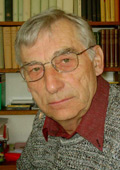Neuhofjahre
1769-1798
Pestalozzi's son Jean Jaques
One day after the cancellation of capital investments by the Schulthess bank Anna gave birth to their only child, a boy, who was christened Jean Jaques in memory of the grand Jean Jaques Rousseau. Pestalozzi tried to educate his Jaqueli based on the principles that Rousseau described in "Emile". One fragment of Pestalozzi's diary today still exists, which refers to the time between 27th January and 19th February 1774. Here one can see the young man Pestalozzi, who is interested in questions of education in a general way, but who also wants to adapt his theoretical knowledge and to prove it practically. So his son's education was also a critical look at Rousseau's theories. Rousseau's opposition between freedom and obedience was a first reason for Pestalozzi to dissociate from these ideals. The conclusion that Pestalozzi drew from the difference between theoretical principle and practical experience characterized all his thoughts and his actions.
"Truth is not one-sided." And he continues: "Freedom is a value. Obedience is a value. We have to connect what Rousseau separated. Convinced by the misery of an unwise hindering, which humiliated the people's houses, he did not find a limit of freedom" (PSW 1, p. 127)
Jaqueli however did not develop in the way Pestalozzi had hoped for: He was not very talented and often reappearing epileptic breakdowns destroyed his health. Additionally Jaqueli's contact to the children in his father's house for the poor (see text below) showed some unwanted side-effects. From the mentioned education-diary we know, that Pestalozzi tried to teach the just three year old boy how to read. Obviously without success as we can read in a letter that Pestalozzi wrote to the educationist Peter Petersen 8 years later:
"He cannot even recite two lines of a prayer by heart; he can neither write nor read. I faithfully hope that this ignorance, I left him in in providence, will become the basis for his exquisite education and his best zest for life." (PSB 3, p. 132)
Pestalozzi's hopes were based on his conviction, that a naturally educated child with its knowledge based on own experience had better qualifications for the real education than those children who were fed with knowledge from books as early as possible. But one year later the Pestalozzis decided that their 13 year old son should no longer live on the isolated Neuhof and sent him away for education and training. They left him to the tradesman Felix Battier in Basel, where the former mentioned Peter Petersen worked as a private tutor. Petersen and Pestalozzi corresponded with each other since spring 1782. They discussed very interesting educational subjects. The Petersen letters are a vivid document about Pestalozzi's genuine educational interest in his young years and for his certain educational feeling.
After an education in Mulhouse and business training with the family Battier in Basel, Jaqueli returned to the Neuhof. In 1791 he married Anna Magdalena, née Fröhlich. Already 10 years later he died and the Pestalozzi line of ancestors was held up by the only son Gottlieb. Gottlieb's son Karl however did not marry and did not have children, so the house of Pestalozzi died out.
